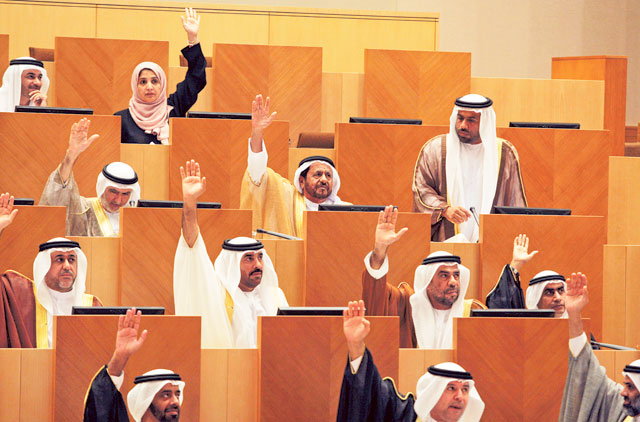Abu Dhabi: The Minister of Environment and Water, Dr Rashid Bin Fahd, will be questioned at the Federal National Council’s meeting on Tuesday about a mystery disease that has killed more than 200 camels across the country and the control of wastewater treatment.
Mosabeh Saeed Al Katbi, a member from Sharjah, will put two questions to the Minister of Environment and Water about the spread of a mystery bug that has killed camels in the northern parts of Al Dhaid in Sharjah and the ensuing losses of farmers in the northern emirates as well as parts of Al Ain and Dubai.
Al Katbi warned the infection status has become a semi-epidemic sending a wave of panic among farmers and scientists who are baffled as to what the disease is and its cause.
“The Ministry of Environment has to set up a contingency plan to closely monitor the situation especially as the exact cause of this camel ailment is yet to be known,” Al Katbi said.
Scientists had been investigating lines such as poisoning, antibiotic pollution, viruses and climate change as possible causes.
An estimated 200 camels in Sharjah, Al Ain and Dubai have died so far from the mystery bug.
The House will also debate a bill meant to ensure doping-free horse racing and promote health, fairness and equality for them in the UAE.
The draft law aims at ensuring a harmonised and effective anti-doping programme is set up at the national level with regard to detection, deterrence and prevention of doping, according to Ahmad Obaid Al Mansouri, an FNC member from Dubai.
Al Mansouri added the draft law envisages protecting and promoting the horse racing industry and ensuring international sport ethics and standards are met.
The law bans all drugs, unless they are licensed for use by the Ministry of Environment and Water or the authorities concerned to treat specific medical conditions such as anti-inflammatories and muscle relaxants, Al Mansouri said.
Offenders will face a minimum fine of Dh20,000, but not more than Dh100,000. Repeat offences within three years will carry a fine of up to Dh500,000, according to the draft law.
Authorities may also ban offenders from taking part in horse racing for three years, closing the offending sports facility for not more than three years or cancelling the licence of the offending facilities.
Al Mansouri said the bill will fight any illegal practices by stables which resort to injecting their horses with banned steroids in an effort to improve their racing performance.
Under existing laws, there are no rules governing the use of performance-enhancing drugs in horse racing around the world. However, the use of anabolic steroids are allowed out of competition in the UAE and Australia.
The draft law orders horse owners and breeders to take precautions to prevent horse doping and to immediately report any offence made by any person or establishment to the authorities.
Abdul Aziz Abdullah Al Za’abi, a member from Ras Al Khaimah, will put a question to Dr Abdullah Al Nuaimi, Minister of Public Works and Chairman of the Shaikh Zayed Housing Programme, about the causes of the delay in the construction of 40,000 houses for citizens. Ali Eisa Al Nuaimi, a member from Ajman, will also seek clarification of coordination between local departments to facilitate granting Emiratis plots of lands to build their houses.













